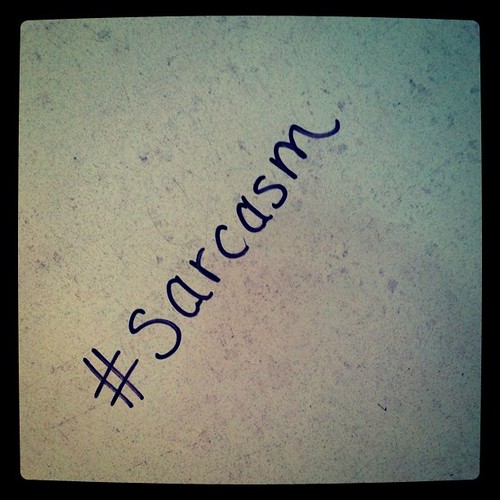
Oh the difficulties of using sarcasm online! How are you supposed to get across the fact that you are being sarcastic when you can’t alter the tone of your voice, give a little wink-wink, or nudge-nudge? Anyone with a sense of humor that instant messages has surely encountered this problem first hand.
This week I was fooled once again. CNN published an opinion article on why Stephen Colbert’s bid for presidency must be stopped. Here is a sample that quotes Colbert and explains why he would be horrible running our country.
America’s role in world: “If our Founding Fathers wanted us to care about the rest of the world, they wouldn’t have declared their independence from it.” Under a Colbert administration, it appears America would just attack other countries for no valid reason.
The whole time I knew that Colbert’s candidacy and stances are simply a joke, but I thought the person writing the opinion article was taking it seriously. Apparently I was wrong. Upon closer inspection, that little blurb at the beginning introducing the author can be quite important. Usually it just toots the person’s horn and gives you links to their other material, but this time it actually contained something of real value. “Dean Obeidallah is a comedianâ€. And in case that isn’t evidence enough, if you take a look at the Story Highlights in the sidebar, you will see “he channels Colbert, satirically calls his candidacy a threat to our way of life â€
So the author was being sarcastic and I had no idea. Honest mistake, could happen to anyone. This is an obvious problem. And when there is a problem, we need a solution. Enter sarcastext.
Sarcastext is a idea for a specific font to be used whenever you are being sarcastic. The font itself alerts the user to the sarcasm, just as bold, italics, and capitalization are used for emphasis. Thus, whenever the reader encounters sarcastext font, the joke will not go over their head, which we have seen can have embarrassing consequences.
This idea goes back to my early days of AOL IMing and I can’t credit myself as the one that came up with it. Neither can I remember who did. So junior high friends, if you are reading, take credit in the comments …
The article even makes some Hitler references, as previously mentioned in my post on Godwin’s law.
Photo: ManyLittleBlessings








